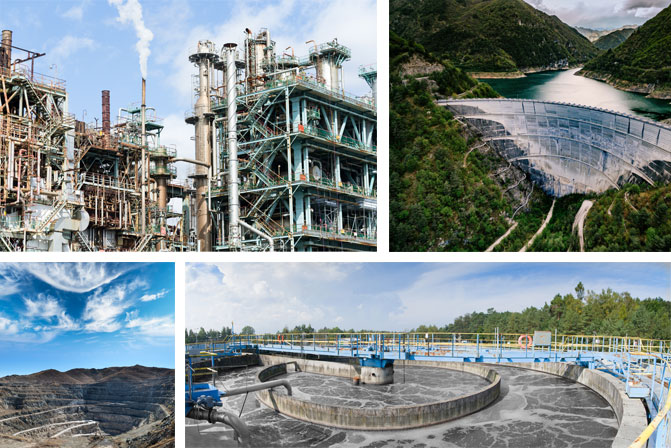Industrial valves are devices used to control, regulate or direct the flow of fluids (gases, liquids, and slurries) in pipelines and process systems. They are used to start, stop, throttle, and regulate the flow, pressure, and temperature of the fluid. They are commonly made of materials such as stainless steel, brass, and cast iron.
Different types of industrial valves include gate valves, ball valves, butterfly valves, globe valves, diaphragm valves, and check valves. Industrial valves are used in various applications, including:
- Oil and gas pipelines
- Power plants
- Chemical processing
- Water and wastewater treatment
- Food and beverage processing
- Pharmaceuticals
- Mining
- Marine
- HVAC systems
- Fire protection systems.
In all these industries, industrial valves play a critical role in controlling, regulating, and directing fluid flow to maintain process efficiency, safety, and environmental protection.
The usage of these valves includes:
- Controlling fluid flow: Valves are used to start, stop, regulate, or divert fluid flow.
- Regulating pressure and temperature: Valves are used to regulate pressure and temperature, ensuring that the process remains within specified limits.
- Isolation: Valves are used to isolate sections of the pipeline for maintenance, repair, or replacement.
- Safety: Valves are used to provide safety protection by preventing over-pressure, relieving excess pressure, and controlling fire.
- Quality control: Valves are used to maintain the quality of the fluid by preventing contamination, mixing, or backflow.
- Energy conservation: Valves are used to optimize the flow of fluid to conserve energy and reduce costs.
- Environment protection: Valves are used to prevent spills, leaks, and emissions, thus protecting the environment.
